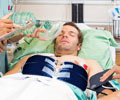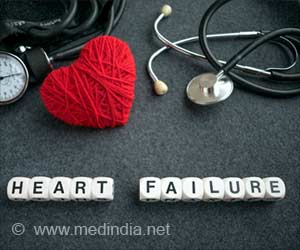Cardiopulmonary resuscitation (CPR) without mouth-to-mouth rescue breathing could be a better option to save victims of cardiac arrest, according to a study.

The expert has recommended hands-only (or compression-only) CPR by bystanders who are not adequately trained or who feel uncomfortable with performing rescue breathing on other adults who collapse from sudden cardiac arrest.
In an editorial accompanying the studies, cardiologist Myron "Mike" Weisfeldt, M.D., physician in chief at The Johns Hopkins Hospital and director of the Department of Medicine at Hopkins' School of Medicine, says "less may be better" in CPR, calling the findings straightforward, practical and potentially life-saving.
The two studies were conducted between 2004 and 2009 on more than 3,000 men and women who needed CPR.
Among their key findings are that survival rates were similar for adults who received their CPR from bystanders randomly assigned to provide only chest compressions and those who were instructed to do standard CPR with rescue breathing.
All bystanders involved in the studies were instructed by phone on which CPR method to use by 911 telephone dispatchers.
Advertisement
The researchers say the numbers were statistically the same.
Advertisement
He also notes that there are adults with breathing-related causes of sudden death where rescue breathing should be performed, including patients with sudden, acute heart failure, severe chronic lung disease, or acute asthma, and cardiac arrest.
However, "for people who are not well trained or who are looking for a simple way to help save a life, chest compressions only, at least until the emergency care unit arrives, can be life saving, even without rescue breathing," said Weisfeldt.
The editorial and the studies have been published in the New England Journal of Medicine.
Source-ANI















